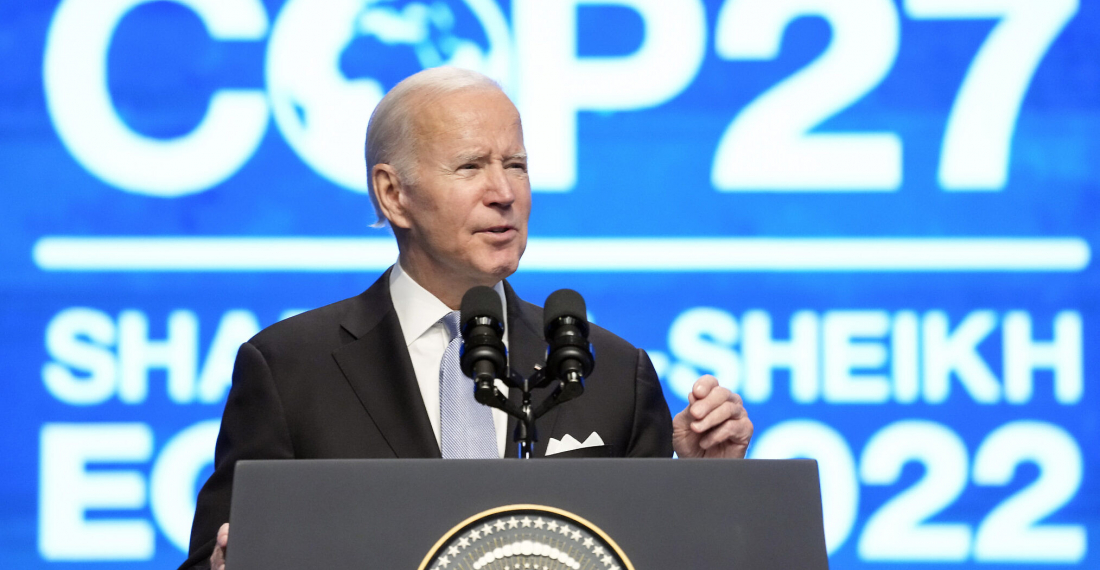The US mid-term elections held last week were expected to be a disaster for US president Joe Biden and his Democratic administration. A Republican surge was expected to sweep the party to comfortable majorities in both the Senate and the House of Representatives. In the end none of this happened. The outcome of the election means that the gridlock that some had been predicting between President and Congress on many issues, including foreign and security policy is now not likely to happen, or in any case not on a scale to be a concern. In this Monday Commentary for commonspace.eu Dennis Sammut says that this is important not only for the United States, but also for the world. The current global situation is complicated and challenging, and US leadership is needed more than ever. Leadership is not hegemony. Nobody wants the US to dictate and impose its views on the world. Multipolarity, which some speak so enthusiastically about, should not be about how many nuclear missiles countries can point on each other, but rather on a competition of ideas and models. In this the world needs diversity. Yes, there are universal values, and these are already recognised in a number of documents adopted by nearly all countries, but on many issues there is room, and even need, for diversity.
The US mid-term elections held last week were expected to be a disaster for US president Joe Biden and his Democratic administration. A Republican surge was expected to sweep the party to comfortable majorities in both the Senate and the House of Representatives. In the end none of this happened. The Democrats maintained control of the Senate, and although they may have lost their majority in the House, it is likely to be by the narrowest of margins, which would still allow many deals to be made on a bi-partisan level.
The reasons for this have been analysed in detail by many experts and observers: the Trump factor, the threat to the right of choice on abortion; mixed economic realities, etc.
But whatever the reasons, the outcome of the election means that the gridlock that some had been predicting between President and Congress on many issues, including foreign and security policy is now not likely to happen, or in any case not on a scale to be a concern.
This is important not only for the United States, but also for the world. The current global situation is complicated and challenging, and US leadership is needed more than ever. Yes, Europe can and should in the future share in both the leadership role, and the responsibilities that go with it, but the EU is not ready for this yet, so that role for some time yet needs to be continued to be played by the United States.
Leadership is not hegemony. Nobody wants the US to dictate and impose its views on the world. Multipolarity, which some speak so enthusiastically about, should not be about how many nuclear missiles countries can point on each other, but rather on a competition of ideas and models. In this the world needs diversity. Yes, there are universal values, and these are already recognised in a number of documents adopted by nearly all countries, but on many issues there is room, and even need, for diversity.
If leadership is not hegemony, what is it?
It is first about the willingness and ability to galvanise and mobilise the international community at a time of crisis. The US, and the EU, have been doing that on Ukraine this year. It meant standing up to Russia.
Leadership is also about leading from the front, by example, by policies, and by resources, on key global issues such as climate change.
Leadership is about being on the forefront in promoting and supporting a rules-based international system.
The Biden administration has shown it can do this. Even taking into account the doubtful decision to withdraw, many say prematurely, from Afghanistan, its track record to date has been overall positive.
Joe Biden can sometimes look like a confused president, confusing Cambodia with Colombia and other slips of the tongue. But in fact he has a grip on his foreign policy brief, and even more importantly, he has a dynamic and effective foreign policy team not seen in the US for some time. This team has projected an image of a US foreign policy that is coherent, co-ordinated and effective. It has built bridges with allies, that had been all but destroyed during the Trump years. In short, it has provided leadership at a crucial time in world history.
The new Congress will not change that very much. There may be a nuance here or there, but overall we expect the next two years of Biden to be continuity of the last two. For many world leaders who have come to depend on US leadership, that is a relief. But the US can be neither complacent nor arrogant. The current situation demands hard work and a humility in engaging with the international community which would allow for broad consensus on key global issues to emerge, and for spoilers in the international system, for example Russia, to be challenged.






